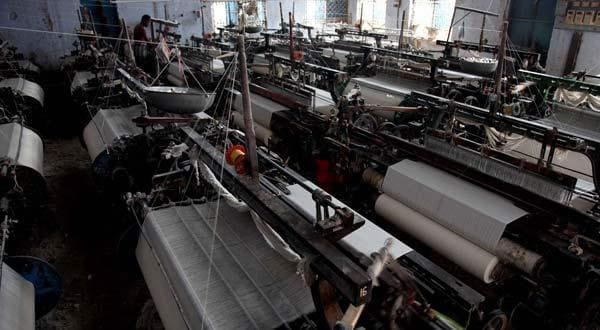The coal crisis in the country has hit the textile processing units in Surat hard. Nearly 400 units in this southern Gujarat city, employing close to 500,000 people, plan to cut down production from next month because of rising coal prices. Industry executives said an increase of nearly 50% in costs of colour and other chemicals in the past two months has added to the woes of textile processors.
The processors are importing coal from Indonesia, prices of which have shot up to Rs 18,800 per tonne from Rs 5,000 per tonne a few months ago. Lignite coal production in the country has been affected due to the monsoon, which is why the units are now depending on imported coal to meet 80-90% of their requirement.
The system involves the weavers selling grey cloth to textile wholesalers who then send it to the mills for dyeing, printing and finishing. The boilers in dyeing and printing units generate steam using coal.
“We will have to bring down our production if the cost escalates in a spiralling manner. To begin with, units will work five days a week, as against six days a week, from next month,” Jitendra P Vakaharia, president, South Gujarat Textile Processing Association, told. “The processors will meet again on October 23 to take stock of the situation and decide future course of action.”
The processing units in Surat are major suppliers of cotton and rayon textiles across India. They process the raw fabrics and send them to the textile wholesalers. In Surat alone, there are nearly 60,000 textile wholesalers.
Pramod Chaudhary, chairman of Pratibha Group of Industries, said the cost of production has gone up 25-30% following the increase in coal prices. Rising freight cost has added to the production cost.
“Prices are continuously moving up, with little respite. We do not see the situation normalising before February,” said Choudhary.
Textile processors are also discussing the price rise with textile wholesalers. “The following five months is the peak period for demand. So we have to be cautious too while increasing prices so that it does not impact demand,” said Chaudhary.
The processors feel that if prices of coal do not cool off before Diwali then they will be forced to close down the units for a month. “We are in a spot now. If we keep the mills running, we will have to face huge losses daily. If we keep the mills closed, we will have to spend a huge amount to restart the machines. The migrant workers will also leave, creating a short supply in the workforce,” said Chaudhary.

